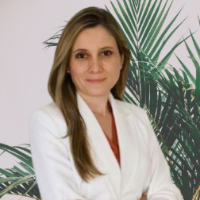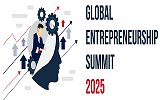Global Entrepreneurship Summit 2025

Universidad San Francisco de Quito, Ecuador
Abstract:
Over the past decade, Ecuador´s entrepreneurial ecosystem has encountered several challenges that have affected business growth and sustainability in the market. Nevertheless, Ecuador boasts a high rate of total early-stage entrepreneurial activity, as the Global Entrepreneurship Monitor (2024) reported. This suggests that Ecuador has the potential to develop its entrepreneurial sector. This paper contributes to strengthening Ecuador’s entrepreneurial culture by identifying the variables, factors, and strategies that have supported businesses to successfully navigate the entrepreneurial phase and transition into the growth stage as micro or small enterprises. The analysis focuses on the tourism industry as a key driver of the Ecuadorian economy, where entrepreneurial ventures encounter significant challenges, including limited professionalization, insufficient management training, and regional development disparities. The study employs a qualitative methodology based on semi-structured, in-depth interviews with entrepreneurs whose businesses have survived over the past decade and are now micro or small enterprises. The research is conducted in three representative Ecuadorian locations: Quito, Loja, and the Galápagos Islands. The findings contribute to understanding collaborative entrepreneurship by sharing knowledge and identifying the best practices to help emerging new ventures strengthen their growth and survival in a developing economy.
Biography:
Alice Aguiar-Noury holds a Ph.D. in Economics and has contributed to publications on entrepreneurship, financial performance, media visibility, and brand value. Through her work, Alice aims to identify innovative and sustainable business models that drive economic growth and promote social development and well-being. Her goal is to actively contribute to creating an ecosystem that supports entrepreneurs. Beyond her academic career, Alice has held leadership positions in both the public and private sectors. She has led projects in business improvement, strategic development, and educational innovation. Her experience enables her to integrate economic theory with business practice, generating impact across various initiatives.
